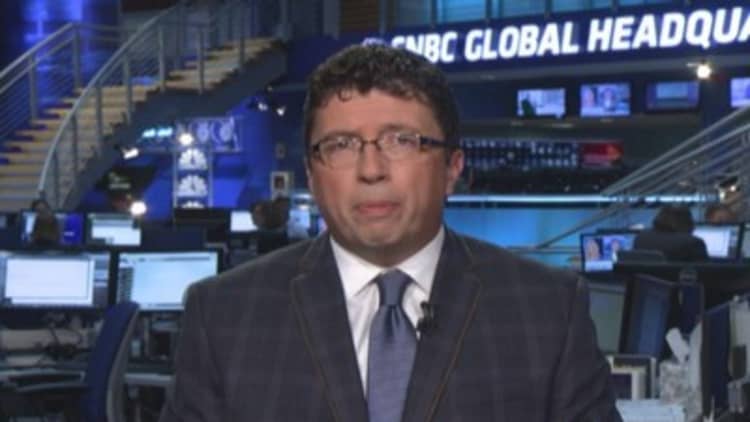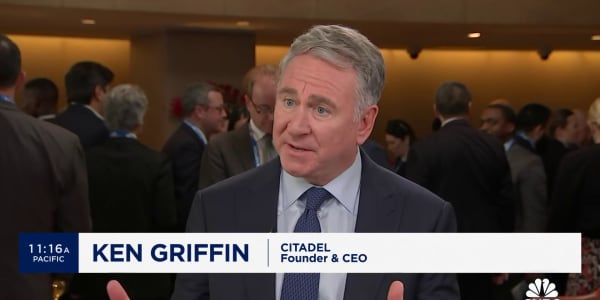
A test program to change the way small-company stocks are traded could slow high-frequency action, though some market participants worry that the initial steps are too tepid.
The Securities and Exchange Commission announced the proposal Tuesday in which 1,200 small-cap firms will be divided into three equal-sized groups with different standards governing each. (Read the whole report here.)
One group—the "control"—essentially would trade the same as before; the second would see stock prices quoted in 5-cent increments, as opposed to the penny increments currently used; and the third also would trade in 5-cent increments but also would follow a "trade-at" requirement in which trading centers couldn't match prices unless they display the best bid or offer.
Ostensibly, the program's goal is to "enhance market quality for smaller capitalization stocks for the benefit of investors and issuers," according to the SEC. More practically, the changes are aimed at thwarting high-frequency traders who have used the lightly traded small-caps to skim profits by getting lower prices on purchase and higher prices on sales than their slower competitors.
Read MoreCitadel CEO: HFT firms need to be secretive
If successful, the plan could find more widespread use as market officials try to address pricing inefficiencies that regulators worry are caused by high-frequency trading. The industry was highlighted earlier this year in Michael Lewis' "Flash Boys" book that profiled how one firm had developed a system that mitigated the HFT firms' advantages.
Inside the market, the SEC's effort got points for effort but still raised some worries.
"What does concern me is there are a bunch of exceptions thrown in there, particularly on test group three," said Joe Saluzzi, a partner in Themis Trading and outspoken advocate for trading reform. "There may be a need for some, but that to me smells a little bit like some interests are now being put into the rule."
Indeed, there are 13 exceptions to the "at-trade" group that allow the pilot shares to be exchanged outside the nickel increments.
The changes to the so-called tick sizes impact high-frequency traders because it's cheaper to trade stocks at high volume if they're only moving a penny at a time then a nickel.
Read MoreHigh-speed trading firms not sweating new regs
While HFT firms often say they help provide liquidity to the market, advocates for the changes believe the tick adjustments actually will bring more traffic through truer price discovery, instead of market distortions brought about through HFTs trying to undercut each other.
Saluzzi said it's important that the pilot program offers a real taste of what a nickel-tick world would look like.
"What's missing, and is missing from a lot of the SEC rules, is any sort of input by public corporations—the actual companies that are going to be in the pilot program," he said. "They need to be a little bit more involved in the process."
The program will run for a year—another concern cited by reformers.
"Putting in place something so defined, with a start/finish, defined spread, etc. will no doubt present unintended opportunities for smart, creative traders that we are not aware of yet. (I'm thinking of the HFTs out there that arguably have benefited from the current penny trading rules—no one predicted that)," Peter Andersen, CIO at Congress Wealth Management, said in an email. "Maybe it would be better to let the program run for an unspecified time period instead."
Read MoreFidelity looking to open new trading platform
"I'm not clear the program has well-defined criteria for deciding if the pilot should become policy," he added. "It would be helpful if the exact metrics are released to the market rather than providing 'rolling disclosure' that I suspect will be the case."
SEC chief Mary Jo White called introduction of the pilot program "an important step for a valuable initiative that could have meaningful implications for market quality."
The statement kicked off a 21-day comment period that Saluzzi said he will utilize.
"We like the concept," he said. "We've been very supportive of it. We think this is a good idea."
—By CNBC's Jeff Cox






